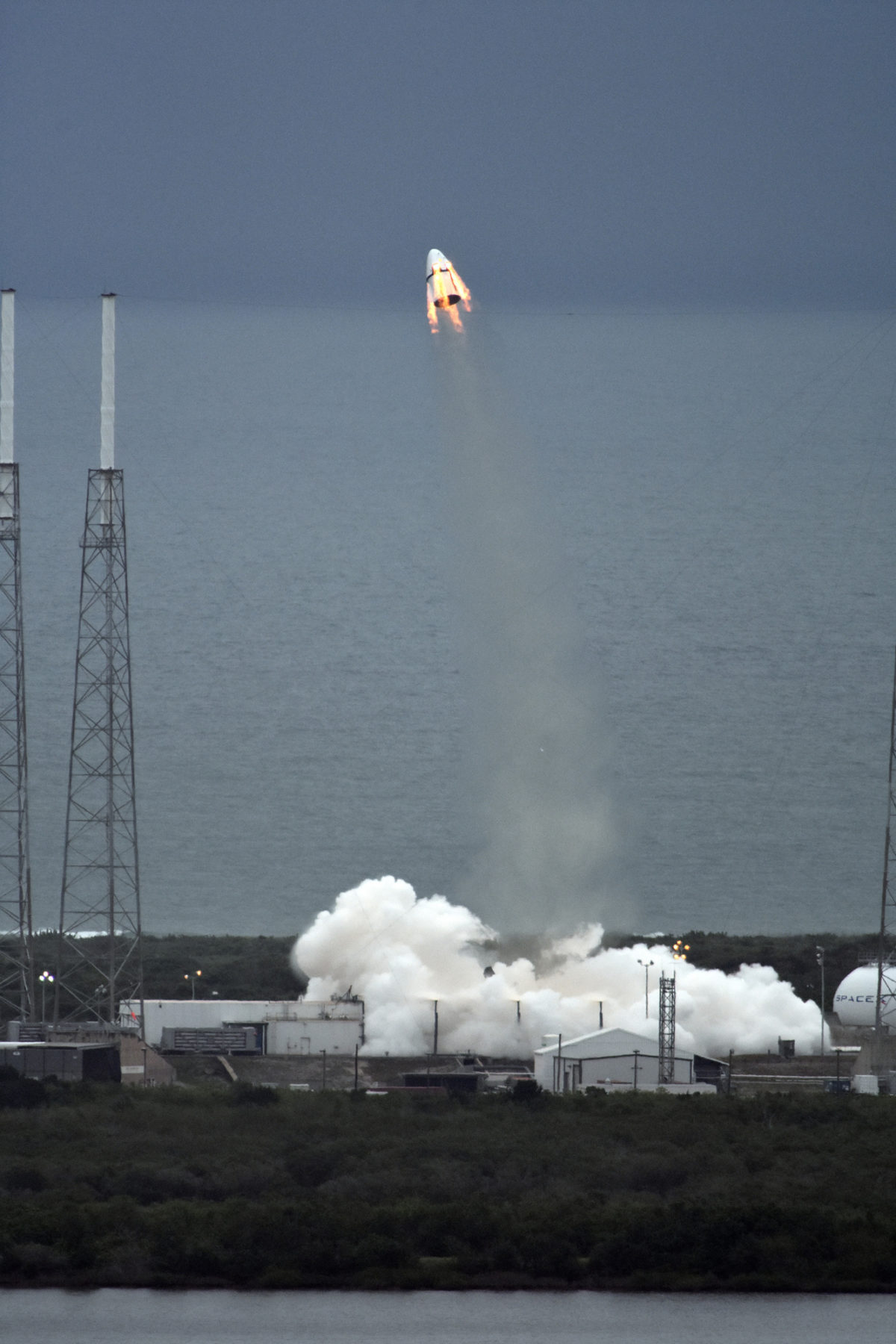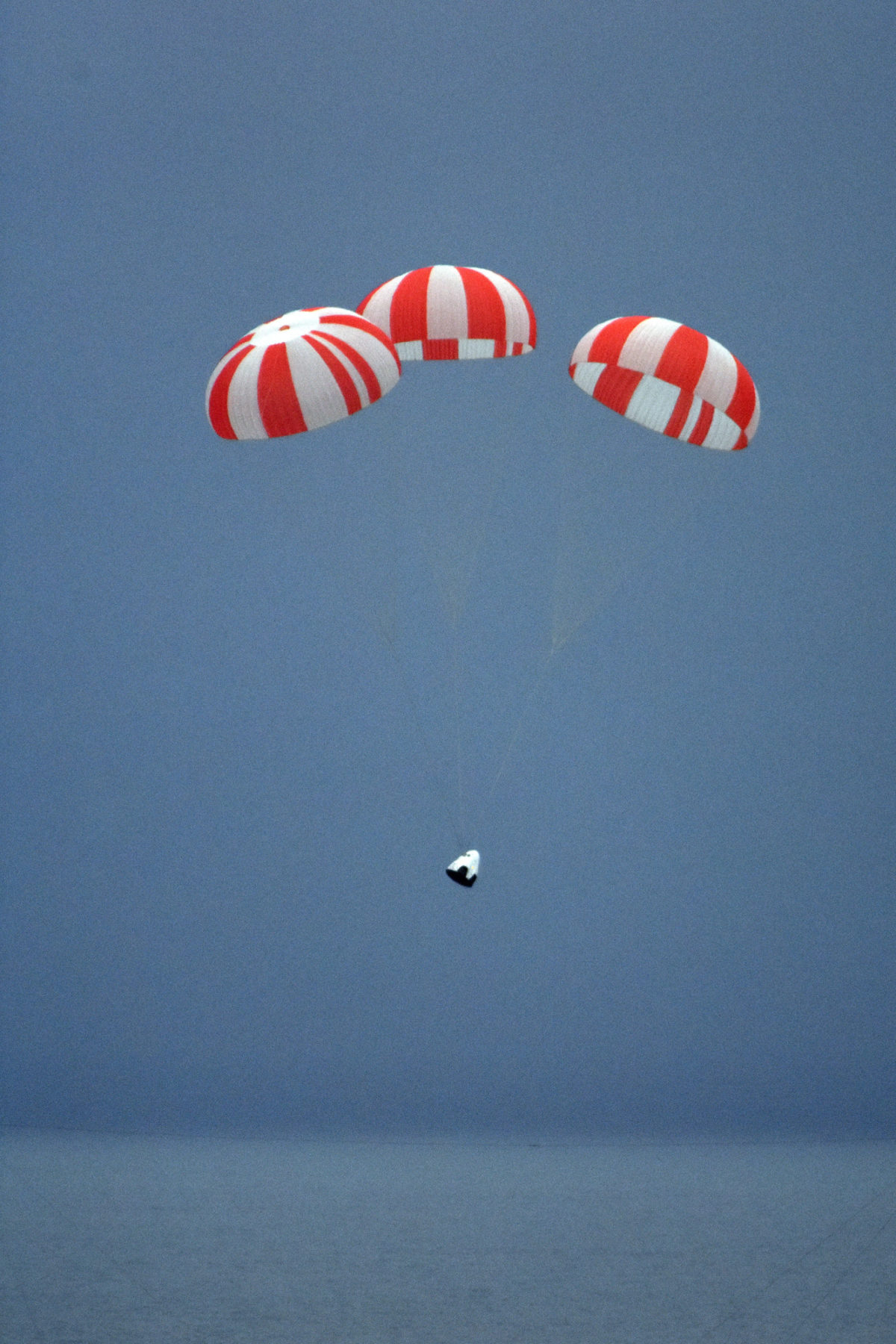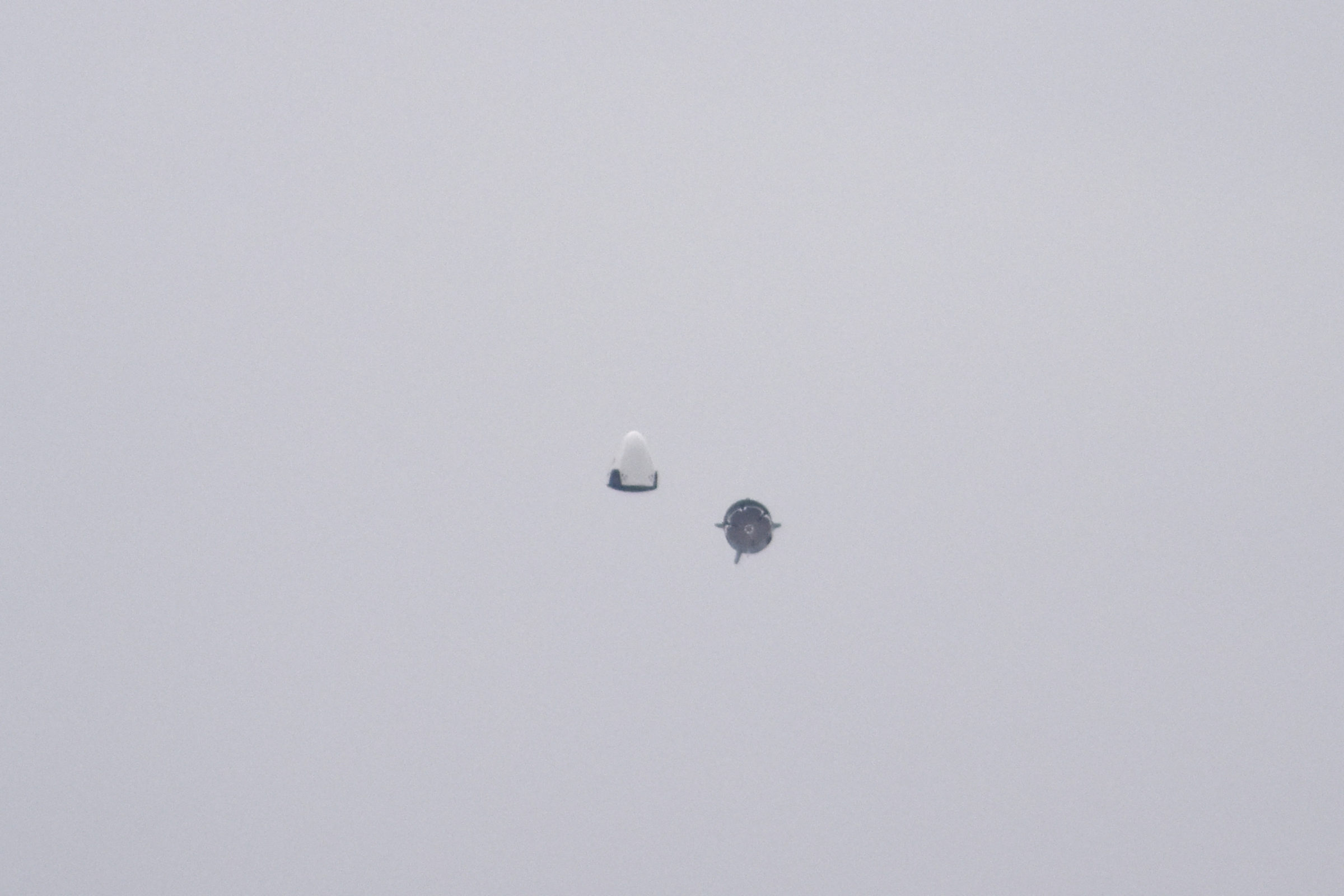Jason Davis • May 06, 2015
In Pictures: SpaceX Crew Dragon Takes Flight in Pad Abort Test
A SpaceX Crew Dragon spacecraft rocketed into overcast skies under its own power at Cape Canaveral this morning, completing a critical milestone necessary to certify the spacecraft for crewed flights in 2017. The spacecraft’s pad abort test showed Dragon can blast its crew to safety if its Falcon rocket has a catastrophic problem before launch.
Dragon pad abort test Video: NASA TV
At 9:00 a.m. EDT (13:00 UTC), Crew Dragon’s eight SuperDraco engines ignited, pushing the spacecraft away from the launch pad. Just five seconds later, the burn was complete, with the vehicle reaching a top speed of 555 kilometers per hour (345 miles per hour). Dragon’s unpressurized trunk section was jettisoned, and two drogue parachutes were released to stabilize the vehicle. Three main parachutes deployed next, bringing the spacecraft in for a gentle splashdown off the Atlantic coast. The entire sequence lasted about one minute, forty seconds.
Dragon abort test stats: 0 to 100 mph in 1.2 sec, top speed of 345 mph
— Elon Musk (@elonmusk) May 6, 2015
In a press statement prior to launch, SpaceX cautioned the nature of the test meant the odds of encountering problems were high. On the flight communications loop, the phrase “slightly below nominal” was heard—with Elon Musk confirming later one of the SuperDraco thrusters underperformed. Nonetheless, the test successfully demonstrated an end-to-end pad abort test. If NASA certifies the results, it will net the company $30 million as part of its original Commercial Crew integrated Capability award. SpaceX, along with Boeing, hopes to begin crewed flights to the International Space Station in 2017.


Support our core enterprises
Your support powers our mission to explore worlds, find life, and defend Earth. You make all the difference when you make a gift. Give today!
Donate

 Explore Worlds
Explore Worlds Find Life
Find Life Defend Earth
Defend Earth


